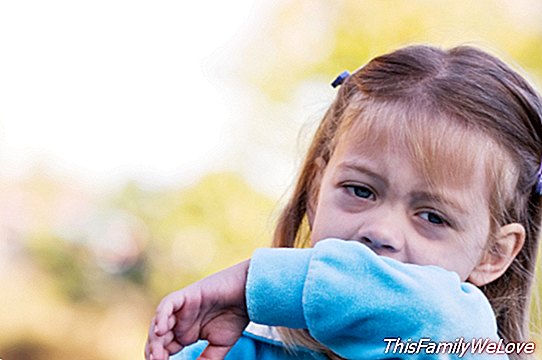Can allergic rhinoconjunctivitis be prevented?
Spring brings with it allergies, those feared affections that are commonly associated with this season of the year. The cause? The proliferation of pollens in this equinox causes a greater appearance of allergies and among its symptoms one of the most annoying: allergic rhinoconjunctivitis caused by the rejection of pollen that is at ease during the spring. However, if precautions are taken, allergic rhinoconjunctivitis does not have to make this pretty season so bitter.
What is allergic rhinoconjunctivitis?
The Association of Spanish Pediatrics, AEP, states that allergic rhinoconjunctivitis is similar to what occurs in the bronchi of those with allergic asthma. That is, this disease is characterized by the inflammation of the mucous skin that lines the inside of the nose after having breathed external agents such as the pollens of the plants that dominate the air during the spring. This association also indicates that sometimes allergic asthma and allergic rhinocunjunctivitis occur in the same person, but at the same time, first one and then another.
Detecting allergic rhinoconjunctivitis is easy if symptoms are detected, which are usually quite clear as in any other allergic condition. In this way we must be vigilant if the following signs appear that someone is actually going through this allergy:
1. Nasal packing and obstruction sensation that hinders the entry of air. This symptom is always accompanied by a lot of mucus in the form of dribbling and sneezing.
2. Itchy nose which causes a need to scratch this part of the face all the time.
3. Discomfort in the eyes and continuous tearing.
4. Snoring that had not been heard before as a result of nasal packing that prevents breathing well through the nose at night.
The Spanish Society of Clinical Immunology and Pediatric Allergy (SEICAP) states that sometimes patients with allergic rhinoconjunctivitis purse the nose, lips, turn the head or even the shoulders involuntarily. This causes many times these symptoms are confused with nervous tics that cause parents to take their children to the neurologist, which will only delay the start of the correct treatment.
Can allergic rhinoconjunctivitis be prevented?
In specific cases, allergic rhinoconjunctivitis can be prevented with certain vaccines. However, in the majority of cases it must first be detected that we are facing a patient with allergic rhinoconjunctivitis in order to begin the prevention of this condition by avoiding exposure to pollen or other substances that cause this disease.
That is, it will be important to keep up to date with the level of pollen in the environment in order to know if that day will have to take measures such as the use of masks and even antihistamines will be needed. It will also be advisable to use medicines that help to avoid inflammation of the nose and make this area of the head not so reactive.
Treatment for allergic rhinoconjunctivitis

The first step should always be the consultation with the pediatrician since this professional must be the one who in any case must determine if a treatment has to be started and which should be this. Going to a doctor will help determine if the child does suffer from acute rhinoconjunctivitis or, on the contrary, it is a simple cold with symptoms similar to this affection, especially children between four and five years who often have the mentioned colds.
Once it has been determined that this is a case of allergic rhinoconjunctivitis, these symptoms can be treated with syrups or antihistamine tablets that relieve discomfort in the nose. The AEP recommends that the intake of these drugs begin as soon as the symptoms are detected in a person diagnosed with this condition, in this way we avoid that allergic rhinoconjunctivitis can lead to more serious diseases such as sinusitis or otitis.
Damián Montero
Advice: Spanish Association of Pediatrics AEP




